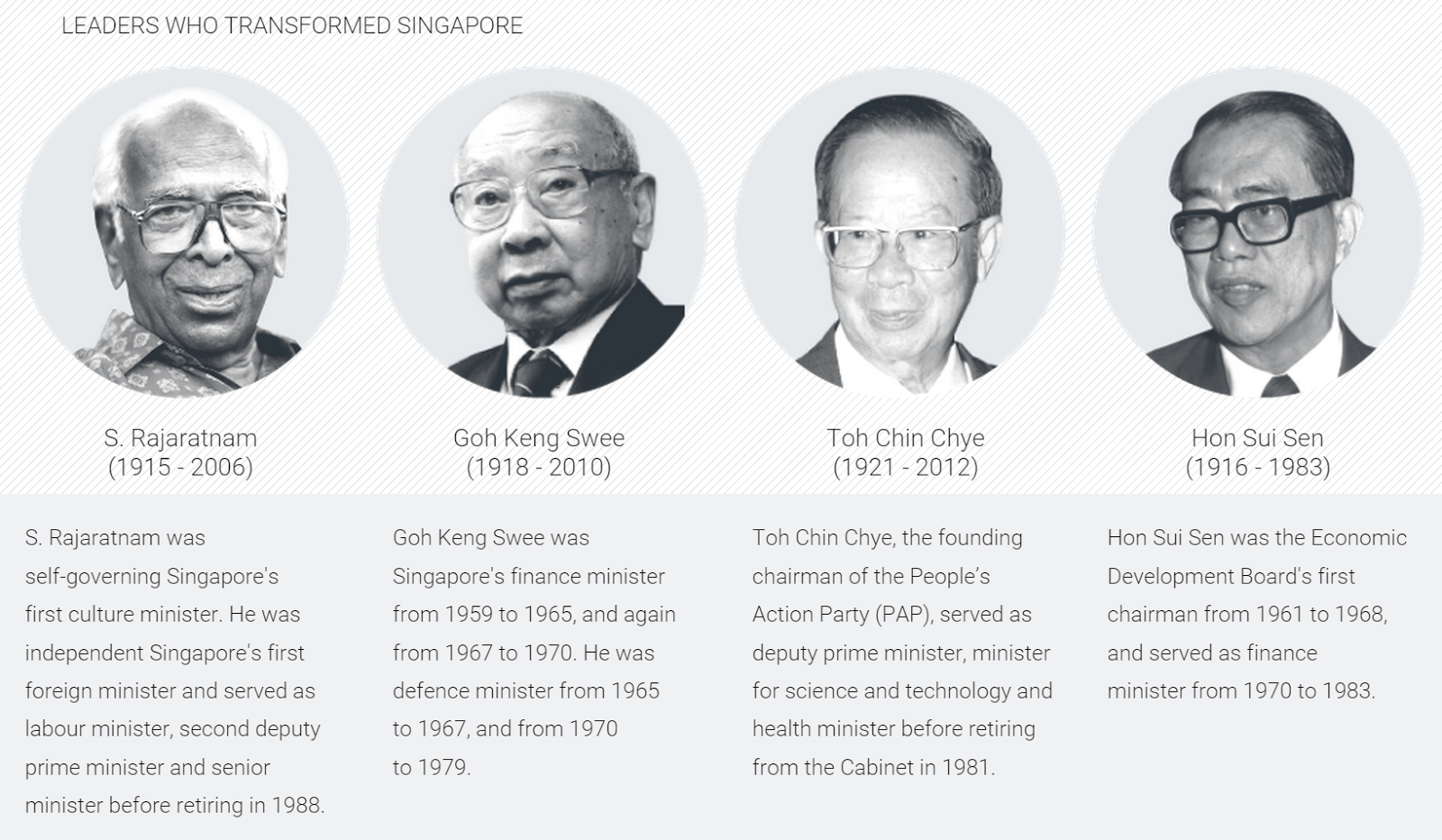There were always fresh challenges ahead. It was highly doubtful if we would succeed after the separation from Malaysia.
But we had the right leaders: Kuan Yew, the creative genius of Keng Swee, Hon Sui Sen, S. Rajaratnam, Eddie Barker, Toh Chin Chye.
As leader, he also, in the course of time, built up the next generation. And he was far-sighted in making way when the time came for the next generation of leaders, who were carefully selected.
He has stepped aside. But he'll be consulted, because his imprint, values, determination are still there.
Although some people have criticised the fact that he places great store on academic achievements, this is understandable, given his own achievements. His wife is also brilliant academically, and so are his children.
Has he changed on this?
I'd like to think that with age, he's grown more tolerant and philosophical - although there are moments when he tends to give no quarter to the opposition.
I first came to know him in 1940, when I was already in Raffles College, which was something of a seedbed for the future leaders in Singapore and Malaysia.
The year he joined us was also when Tun Abdul Razak joined. So that cohort, in fact, produced two Prime Ministers.
Sui Sen, Keng Swee, Eddie Barker, Toh Chin Chye were all also there. So too were Ghazali Shafie, Khadir Yusof. All became very prominent.
The British idea had been to provide a basic minimum: educate locals to a point where they could become clerks, schoolmasters and the like. There was this discrimination - not allowing Asian talent to emerge to challenge them. That rankled us.
Kuan Yew was out to prove, to show, as he says, that the Chinaman is as good as the white man. And he did it, of course, in Cambridge, when he beat them all with his First Class degree.
The fact that the Japanese could defeat the British opened our eyes. It certainly influenced Kuan Yew and those who eventually became political leaders. So did India's independence in 1947.
Maybe you can say they were rebels by nature.
However, they had to wait until they had full educational qualifications, which they acquired at Raffles College and later in Britain, before they could organise themselves.
What was different on their return from Britain was that they had proven themselves there: that as students, they were as good as any white man. That was a test.
The chaps that returned were all bright fellows. And David Marshall, Lim Yew Hock were ahead of them. So they watched them, saw how things were developing.
But Kuan Yew also had ambition. He knew that unless you go into politics, you are not going to achieve anything. Keng Swee also.
The idea was to work through the trade unions to gain ground support before aiming for political power. And Kuan Yew becoming the leading legal adviser to unions was important in that regard.
But you also had to be tough. The communists had penetrated the unions, and it was touch and go at times. But by then, the PAP had the British on its side.
Still, it was a risk. It was such a disparate society in Singapore at the time, with so many racial groups.
But what pulled them through was determination and taking a chance. As Kuan Yew said, if they had failed, they might well have been put up against a wall and shot.
But they thought it was a risk that had to be taken.




No comments:
Post a Comment